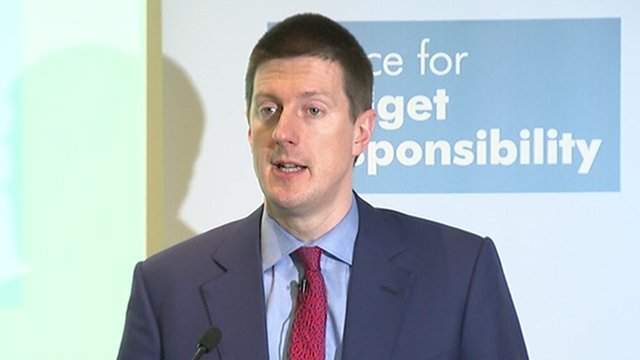
On Wednesday, George Osborne will present his first Budget delivered during a period of economic growth. Despite a deficit forecast to be £111bn and the highest national debt since England last won the World Cup, he is under pressure from both sides of the coalition to reduce taxes, whether on low earners via the personal allowance or middle earners by cutting the higher rate threshold. It is entirely reasonable that politicians are seeking to take advantage of growth forecasts ahead of what will be a closely-fought election. But the last thing the Chancellor can or will do is put further pressure on the public finances via major tax reductions. He will announce improved borrowing projections but he will emphasise that the deficit and debt are the defining challenges, and that they are proving harder to overcome than he expected.
Ahead of the 2015 election, both major parties are jockeying to be seen as the safest pair of hands on the public finances. Both Osborne and Ed Balls have acknowledged the depth of the UK’s problems and committed to tough deficit reduction targets. Osborne has pledged to achieve an absolute budget surpus by the end of the next parliament and will introduce a new Charter of Budget Responsibility in this year’s Autumn Statement (to “fix the roof when the sun is shining”), while Balls has promised to run a current budget surplus (leaving room to borrow for investment).
Short-sighted handling of the public finances has contributed enormously to the economic mess that the UK finds itself in. For the past 20 years, Britain has seen debt steadily climb as successive governments have spent heavily in recessions but failed to save enough in booms. On average, the response to recessions has been 70 per cent greater than the surplus generated in good times. That has lead to a “debt ratchet” that causes debt to rise over each business cycle. Today, the national debt is about £124bn higher than it would have been if the ratchet did not exist.
One reason for the its existence is a persistent overconfidence among politicians and officials. Twenty one of the 25 official forecasts since 2002 have projected that the current budget will return to surplus within five years. When he entered office in 2010, Osborne even adopted that yardstick as one of his two fiscal targets. Yet the budget has not once been in surplus in the past 12 years.
In 2002, Gordon Brown introduced a set of fiscal rules that the IMF rated as some of the best in the world. The Treasury monitored compliance and the National Audit Office looked over its shoulder. In 2010, Osborne introduced his own, tougher, rules and he looks set to introduce a new rule as part of his Charter of Budget Responsibility. These measures have been the equal of anything seen around the world but all have been broken within a decade and all have been insufficient to avoid the debt ratchet persisting.
One solution that has been exceptionally effective is this government’s creation of the Office of Budget Responsibility (OBR), which has dealt with the UK’s forecasting problems. Set up in 2010 to resolve persistent errors, the OBR has gradually built its credibility through impartiality and transparency. It has forced the Chancellor to adjust his Budgets on a number of occasions when the numbers did not measure up. So successful has it been that Balls wrote to its chairman Robert Chote to ask him to assess the opposition’s manifesto pledges. The Chief Secretary to the Treasury Danny Alexander has since lent his support to the idea.
The expansion in the OBR’s responsibilities is a worthwhile first step but it is capable of much more. In future, the OBR could take on responsibility for defining fiscal sustainability and, eventually, the power to adjust tax rates to ensure it. The government recognised that forecasting problems could be largely fixed by passing the responsibility to an independent body. The same may well be true of fiscal sustainability more generally.
The Bank of England is a powerful illustration of how beneficial it can be to delegate operational decisions to an independent, expert body. The Bank’s independence ensured that the nation avoided a damaging tightening of monetary policy in the midst of the recession. The same cannot be said of fiscal policy where the latest estimates suggest that consolidation has cost the UK around 3 per cent of GDP so far. That cost might have been avoided if debt and the deficit smaller had been lower when the crisis began.
Successful fiscal councils overseas demonstrate the need to balance responsibility with credibility. The Dutch CPB is an established part of the political landscape and plays an instrumental role in setting budgets and evaluating manifesto pledges. In the US, the Congressional Budget Office assesses alternative policy options for the government. The credibility of these institutions has been built over decades and it would be a mistake to give the OBR too much responsibility too fast. Nonetheless, evaluating manifestos should be the beginning of the OBR’s expanding set of responsibilities, not the end.
James Zuccollo is senior economist at Reform





